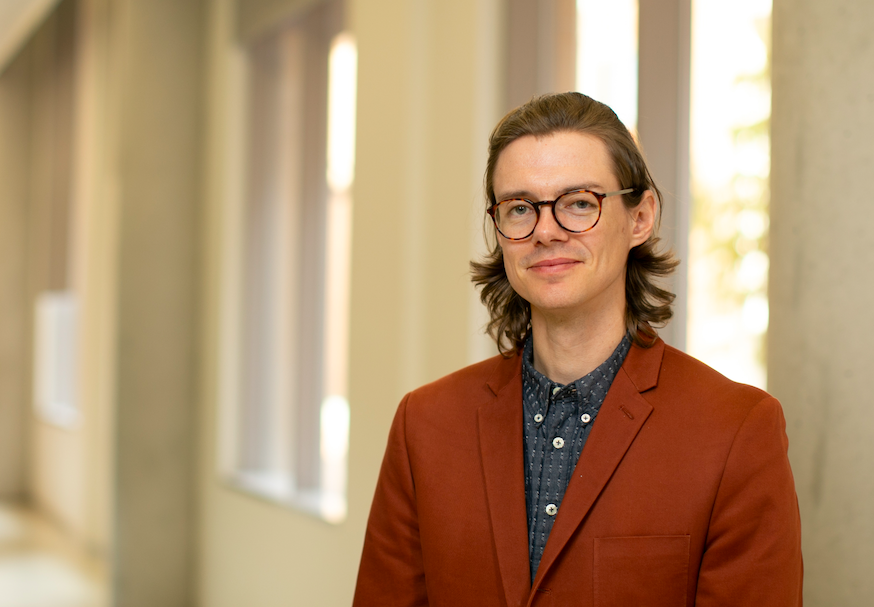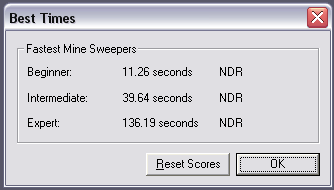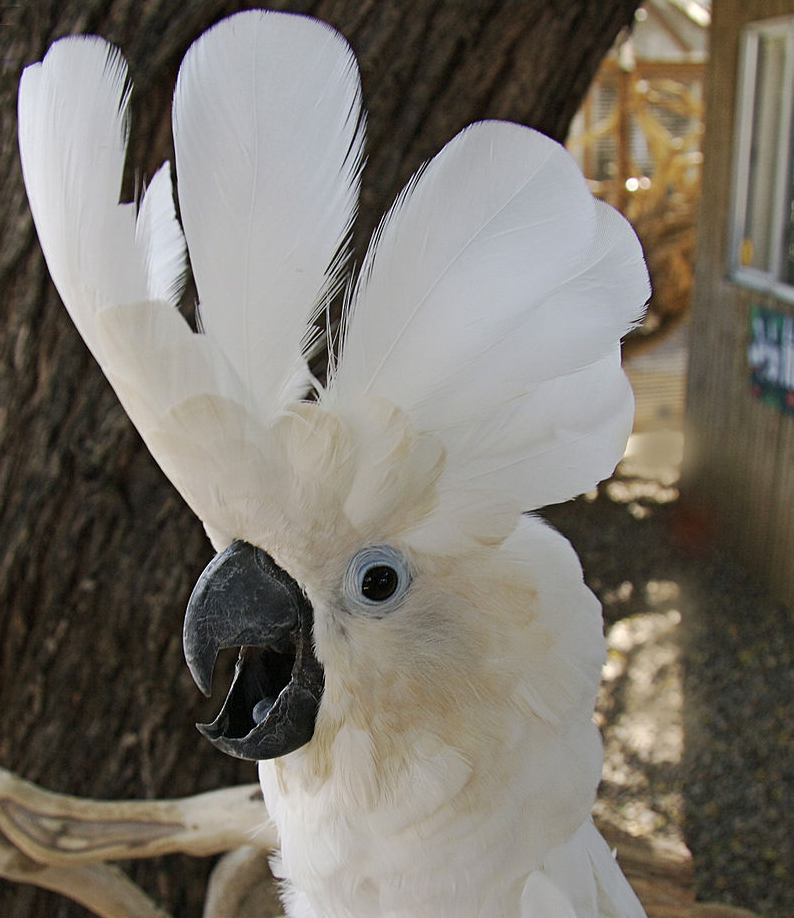
Hello and welcome!
My name is Nathaniel Woodward (né Raley) and I am a data science professional with Indeed.com, where every day I help people get jobs.
Previously, I was a faculty member in the Department of Statistics and Data Sciences at UT Austin, where I earned both MS (2016) and PhD (2018) while working as a researcher and statistical consultant.
I am skilled in online experimentation and modern statistical approaches to causal inference. In my current role, I develop and draw upon a variety of methodologies from statistics and machine learning to provide robust recommendations and predictions for company stakeholders.
I have experience modeling causal effects under endogeneity, including observational studies threatened by selection bias and treatment effect heterogeneity in a nationwide randomized effectiveness trial.
I have also conducted RCT laboratory studies with human subjects to test theoretical claims about human memory as well as interventions designed to improve long-term retention and transfer of learning to new contexts.
I am interested in human–computer interaction and have experience applying psychometric techniques to adaptively model individuals’ latent traits based on their interactions with computers and using such models to inform predictions and to optimize training regimens.
For some examples of my past work, see the portfolio page.
More about me
I love learning1 and I really love learning about learning2—the love of learning infuses my every moment with excitement and personal meaning. When you love learning, life is transformed from a thing that happens to you into a first-person quest for truth, beauty, and goodness: new experiences are mingled with old ones in the crucible of your imagination, producing ever-better mental models of reality, connecting previously unrelated ideas to form new patterns, new visions about the way things are… Once set aflame, this passion for personal truth is continually stoked by the small thrill of every realization and sustained by our profound need to bring order to ourselves and to the cosmos—the conviction that the universe will prove to make some final sense. A joy of learning suffuses life with meaning! It is the essence of education and the prerogative of every human being! We should all feel the tug of curiosity, the engulfing flow of discovery and problem-solving, the sheer awe of finally “getting it.” Every little epiphany is worth its weight in gold: the final product of your every lesson-learned is far more what you know, it is who you are!
But if you are reading this, a lot of “life” has already happened to you: many formative experiences are now well in our past, and from them, relatively stable identities have emerged. Along the way, our schools and workplaces have communicated the view that life is a series of repetitive, unenjoyable duties done grudgingly in exchange for material rewards or social status. But life is not about following directions, or even giving them; no, it is about making new directions, your own directions! To do this requires freeing one’s soul from the sedative cocoon of daily routines and instant gratification long enough to realize that there is still real mystery out in the world, still an infinitude of unrealized possibilities for your future self, still countless unanswered questions and fundamental problems that have become hidden underneath all the artificial cruft of modern life. The first task of an educator is to inspire students, to bring these timeless human issues and ultimate scientific questions into the light of day and to make a case for alternative lifestyles that are guided by them (these are left as a short exercise for the reader3). If these questions do not pull all students into their orbit, then at least they have given prominence to human incompleteness and conflictedness: discontent and the awareness of alternatives form the starting-point of much meaningful intellectual activity! In the words of Allan Bloom,
“The passions should be bound up in the glorious project of fulfilling human nature and searching for final truths, and this binding should be the goal of education.”
Students who love to learn will seek meaning, truth, and enjoyment in everything they do—and they will find it.
Site
Why blog? Initially it was just to have a place to externalize ideas so I wouldn’t forget them—a digital creel to take fishing in the stream of consciousness. Life’s too short for fleeting thoughts; here I could pin them all down side by side and, under the loupe of scrutiny, come to determine (and revise!) what it is I believe.4 Good old Plato would’ve called sites like these hypomnemata; they work like a prosthetic memory for one’s musings (amusing, bemusing), serving as a record of the person I was for the people I will become. I can now look back and see how, in each post or upload, I have unconsciously embedded aspects of my identity-at-the-time. When we write, the billions of experiences we’ve had since birth are brought to bear, and so the author leaves a residue even as he is changed by the process itself.
“How can I tell what I think until I see what I say?”
–E.M. Forster, Aspects of the Novel
You too can see what I say: the internet has created a sort of reverse-voyeurism where I get to say Important Things behind a one-way (or is it two-way?) mirror and pretend you’re watching… even an imagined audience can cause reactivity and I’m a people-pleaser besides! Sunk costs being what they are (e.g., domain registration fee, hours of my life getting this thing up and running), I hope to channel loss-aversion into regular updates and upkeep so drop by and hold me to account5 (or I can just imagine that you’ve been by)!
In August 2017, I migrated my blog and personal website from blogger/AWS to GitHub/Netlify so I could blog stats stuff more simply straight from R Studio using the blogdown package developed by Yihui Xie. I was originally using his theme as well, but the current theme is adapted from htr3n’s adaptation of spf13’s theme. I have tweaked it considerably (and wasted much time in doing so), including the addition of bigfootjs for fun footnotes.6
Personal

Despite the impression you may have gotten from my overwrought prose style,7 I am extremely economical and I abominate waste, especially that of time (the thing I value most highly) or money (which I must sell my time to get).8
“Oh, I’ve plenty of time. My time is entirely my own.”
–Prince Myshkin
I am also quite risk-averse, so I seldom go out anywhere unless compelled by strong arguments: the chances of my meeting an untimely end (or of having my time/money wasted!) go up dramatically when I leave the hearthstones cooling behind me and venture out among my fellow man,9 so I try my best to avoid it.
“It’s a dangerous business, Frodo, going out of your door. You step into the Road, and if you don’t keep your feet, there is no knowing where you might be swept off to. Do you realize that this is the very path that goes through Mirkwood, and that if you let it, it might take you to the Lonely Mountain or even further and to worse places?”
–Bilbo Baggins
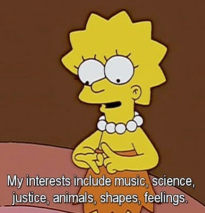
Besides, I like indoor activities best! I enjoy pestering my10 four 11 cats12 juggling,13 puzzling (sweeping mines,14 crossing words1516), quizzing, recreational reading and mathematics (here’s a fun one I saw recently), eating spicy and/or fermented17 things in accordance with lax (read: lapsed) veganism18 (basically, I’ll eat cheese if it’s going to waste or difficult to avoid). ~As of August 2019, I now have two hens (Nina and Maria), both of whom lay eggs, which I also eat!~ As of December 2022, I now have 7 hens (Nina, Big Buff, Little Buff, Ida, Franny, Tuppy, Olive), 2 roosters (Bertram and Cheddar), and 4 guinea fowl (Connor, Al, Egg, and Pepper).
Besides, I like indoor activities best! I enjoy pestering my19 three20 cats,21 juggling,22 puzzling (sweeping mines,23 crossing words24), quizzing, recreational reading and mathematics (here’s a fun one I saw recently), eating spicy and/or fermented25 things in accordance with lax (read: lapsed) veganism26 (basically, I’ll eat cheese if it’s going to waste or especially difficult to avoid). As of August 2019, I now have two hens (Nina and Maria), both of whom lay eggs, which I also eat!
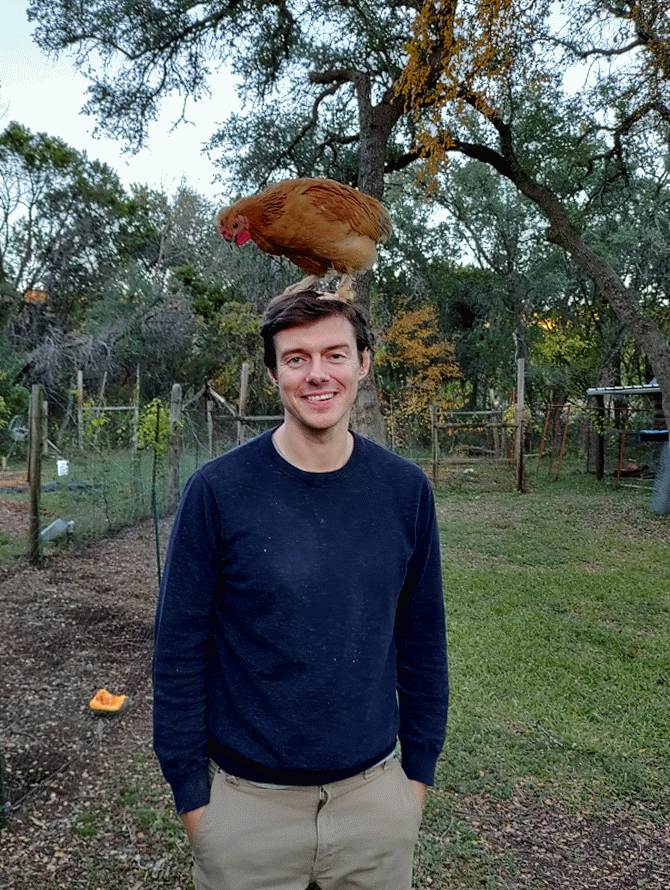
If I were a nonhuman animal, I have it on good authority that I would be an umbrella cockatoo.27 In my relationships with people, I am a strong proponent of the Nordic theory of love28 and I am highly susceptible to second-hand embarassment (Germans say fremdschämen). I get positively irate about the residue left behind after peeling stickers off of jars.29 Yes, I like a jarring juxtaposition, but give me the unity of opposites any day. I love words themselves30 and I like to play word games; I have been known to coopt rapgenius for literary annotations/glosses I can’t find elsewhere.
I prefer my words in text form, and with few exceptions I don’t really like movies or TV.31 Vis-à-vis fiction, the Recognitions is gospel and Suttree my book of sacred psalms. And though their respective Apostles have been perennially passed over for the prize (add Nabokov to their number), I think Chris Onstad deserves the next Literature Nobel solely for his achievements in the genre of webcomics. My sense of humor is literally just Achewood and P.G. Wodehouse and that’s all.
After a relatively quiet 10-year period, I have recently started listening to a lot of modern music, and though art pop and indie rock predominate my streams, my taste is pretty genre-catholic. That being said, I generally prefer music (catchy, orchestral, ethereal, outre, virtuosic) over lyrics.32 Lyrics that are overly literal are often insipid and cringey, and there is no surer way to spoil an otherwise-great song (looking at you, T Swift). As Joanna Newsom said in an interview when asked about her songs’ literal meanings, “If I could say it all the way [in words], I wouldn’t have bothered making a record.”33
Often, I’ll really like a song until I understand the lyrics.34 If I have to hear the words themselves, I like for them to be impressionistic, non-narrative, evocative, and imagery-rich (think Neutral Milk Hotel)35, or grand-sounding fantasy gibberish (King Crimson, Yes36), or free-associationy melodic word-salad with pop-culture references (think Das Racist, Panda Bear), or so vapid as to be entirely ignorable vectors for sound (most modern radio pop), or delivered in a unique and sufficiently distracting voice (like Coheed and Cambria, Grimes), or protean polysemy that lends itself to endless reinterpretation, particularly stuff of the sad-dad variety (Destroyer, Bon Iver, The National).37
whether in vivo, in vitro, or in silico↩︎
I also love learning about learning about learning, but it probably ends there (see “Yudkowsky’s Law of Ultrafinite Recursion”)↩︎
Candidates include old standards such as
* What is the meaning of life?
* Why are we here?
* Is there anyone Out There?
* If so, why haven’t we detected each other yet?
For those of a more political bent, we have
* What is the best form of government
* What does it mean to live a good life?
* What is human nature? Can we change it, and if so, should we?
* Are humans irredeemably evil; could they ever be satisfied with a perfectly good world?
* Could the evil be bred out of humanity over time, as society tames us? Would we still be “human”?
* Does concern for the collective good supersede individual self-determination?
* Should respect for another cultures practices take precedence over Human Rights?
* Can there be an economy not premised on human greed and carried out through symbolic violence?
* Is a healthy economy really a good thing if it means people are consuming more things they don’t need and filling the world with waste?”
* When, if ever, should freedoms be curtailed? * Equality of outcome or equality of opportunity?”
* What should be done when freedom and equality are in conflict?
If you’re feeling philosophical about life, we have
* Can there by goodness without evil; happiness without sadness?
* Is there a real difference between right and wrong, or is it all relative?
* Do we have free will or is everything pre-determined?
* Are ethical truths necessarily religious truths?
* Is there such thing as moral progress?
Other questions are more scientific nature:
* What is the physical nature of the universe? How did it originate?
* What is infinity
* P=NP? * Is the universe ultimately intelligible to humans
* Are there parallel universes in which all alternate possible histories and futures are real?
* Has everything that could have possibly happened in our own past, but didn’t, actually occurred in the past of some other universe?
* If we die, does our consciousness live on in one of these parallel universes?
* What is mean for one thing to cause another?
* Can there be causality if the behavior of subatomic particles is irreducibly probabilistic?
* Can every even number greater than two be represented as the sum of two primes?
* Can every problem whose solution a computer can check easily also be solved easily?
* Are there other intelligent beings out there? If so, where?
* What is consciousness? Are other animals conscious?
* What makes humans different from other mammals?
* What makes humans different from each other?
* What is human memory and how does it work? What are we without our memories?
Perhaps the most enticing are the hypothetical, futuristic ones:
* Is technological progress inherently good; does it have unforeseen consequences?
* Can we live for ever? Should we?
* If we could eliminate pain, should we? On the flip-side, if we could maximize pleasure, should we?
* If your own specific human consciousness was instantiated in a computer simulation, would it be human? Would it still be you?
* What is randomness?
* Is complexity really computationally irreducible?
* Do we experience randomness and complexity because the systems we analyze are just as sophisticated as we are? * Can a computer become conscious? If so, will it then be human? With human rights?
* What if these intelligent machines lack human cognitive limitations: will they be more than human?
* What if one is smart enough to be able to reprogram itself and improve its own abilities, which make it even better at improving itself, and so on recursively?
* If you believe that AI is possible and that hastening its development would solve humanity’s problems, is it moral to devote one’s life to the cause?
* Should you devote your life to building an AI because you realize that a future AI will itself realize that you will have realized this but failed to act, therefore wittingly delaying the creation of a life-saving superintelligence and anticipating its wrath, and thus giving it every reason to retroactively punish you to correct the cosmic balance?
* Is our reality in fact a computer simulation carried out by some technologically advanced post-human civilization?
* …↩︎sorry about all these weird animal-hobby metaphors…↩︎
as soon as I get discus working…↩︎
So fun!↩︎
For more on that, see: http://www.nathanielwoodward.com/aboutabout↩︎
Cormac McCarthy: I always knew that I didn’t want to work
Oprah: How did you manage that? Most people would like to do that.
C: Well, you have to be dedicated, but it was my number one priority
O: That you didn’t want to have a job?
C: Yeah, I thought, you’re just here once, life is brief and to have to spend every day of it doing what somebody else wants you to do is not the way to live it. I don’t have any advice for anybody on how to go about that, but if you’re really dedicated you can probably do it.
O: So you have worked at not working?
C: Absolutely
↩︎who, if not always actively menacing, are always unpredictable and are usually texting while driving!↩︎

I sporadically worked the NYT puzzle in college; I happened to sit down to this one on the morning of my 20th birthday and came across my first name (24 across) and former middle name (76 across) were in it! It also features one of my favorite movies.↩︎Wife and I competed at the 2021 American Crossword Puzzle Tournament!↩︎
sourdough, tempeh, beer, kombucha, wine, idli, dosas, pickles, gochujang, miso, kimchi, sauerkraut… All of which, with the exception of actual wine and gochujang, I’ve made from scratch (with varying success). If you want some tempeh or koji spores, hmu!↩︎
My own personal voice-inside-my-head reasons for a plant-based diet are ethical in nature and can be summarized as follows: “I am an animal, but a unique kind of animal who can understand what it means to feel pain and to die and who doesn’t want that to happen to himself or to any other animals. My unique kind of animal can also live a happy, healthy life at very little personal expense without causing other animals to feel pain or to die.”
I don’t believe other animals, even other mammals, have anything like human consciousness. Nor do I believe they should be accorded human rights. But I do know that at the end of the day, biologically I am a mammal; if you’re warm-blooded and you’ve got hair and a neocortex, then I’m really going to avoid hurting/killing you. If you have a spine and a pulse, I’m giving you the benefit of the doubt (especially since the benefits of eating meat are… what again?)↩︎
I sporadically worked the NYT puzzle in college; I happened to sit down to this one on the morning of my 20th birthday and came across my first name (24 across) and former middle name (76 across) were in it! It also features one of my favorite movies.↩︎sourdough, tempeh, beer, kombucha, wine, idli, dosas, pickles, gochujang, miso, kimchi, sauerkraut… All of which, with the exception of actual wine and gochujang, I’ve made from scratch (with varying success). If you want some tempeh or koji spores, hmu!↩︎
My own personal voice-inside-my-head reasons for a plant-based diet are ethical in nature and can be summarized as follows: “I am an animal, but a unique kind of animal who can understand what it means to feel pain and to die and who doesn’t want that to happen to himself or to any other animals. My unique kind of animal can also live a happy, healthy life at very little personal expense without causing other animals to feel pain or to die.”
I don’t believe other animals, even other mammals, have anything like human consciousness. Nor do I believe they should be accorded human rights. But I do know that at the end of the day, biologically I am a mammal; if you’re warm-blooded and you’ve got hair and a neocortex, then I’m really going to avoid hurting/killing you. If you have a spine and a pulse, I’m giving you the benefit of the doubt (especially since the benefits of eating meat are… what again?)↩︎“That authentic love and friendship are possible only between individuals who are independent and equal.” For more about this, see Anu Partanen’s awesome book↩︎
I collect jars. I have hundreds. I use them primarily to store spices and dried grains/legumes, but I have been known to use a really nice jar decoratively.↩︎
Both as signifiers (words as such) and signifieds (the things or ideas they refer to)↩︎
I especially hated the film Amadeus (but I very much enjoyed Wall*E). And despite their being “active” passtimes, I don’t like video games much either, but if I did, I would like real-time strategy games or RPGs↩︎
With rare exceptions, I’d rather the human voice be used instrumentally: When it’s beautiful language I’m after, I’ll read some poetry. I like most Middle English stuff, Milton, Sir Philip Sidney, Donne, Dryden, Pope, Robert and Elizabeth Browning, Whitman, Dickinson, Edna St. Vincent Millay… I’m a sucker for Restoration-era heroic couplets, sprung rhythm, TS Eliot’s Four Quartets, Seamus Heaney… Really though, Cormac McCarthy’s fiction is poetry enough for a lifetime.↩︎
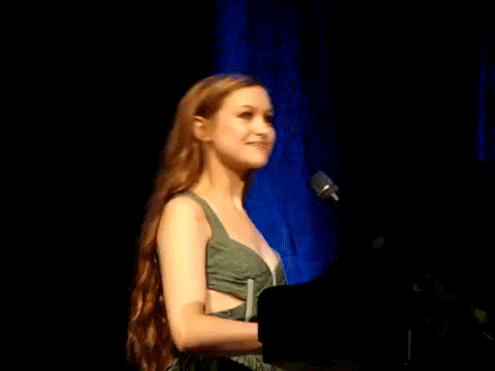 From the same interview…
Q: Does heavy interpretation do a disservice to the music?
Joanna: I love that there are people who listen at that level. It helps slightly soften the blow of the existential horror—it’s an incredibly creatively validating thing. But there’s not a wrong or a right way. I’m not comfortable with the idea that anyone needs to “get” the songs to get the songs. I don’t want to clomp all over that with my heavy-booted definitive statement on what it was supposed to be.↩︎
From the same interview…
Q: Does heavy interpretation do a disservice to the music?
Joanna: I love that there are people who listen at that level. It helps slightly soften the blow of the existential horror—it’s an incredibly creatively validating thing. But there’s not a wrong or a right way. I’m not comfortable with the idea that anyone needs to “get” the songs to get the songs. I don’t want to clomp all over that with my heavy-booted definitive statement on what it was supposed to be.↩︎If Sigur Ros sang in english, I would probably hate it. It’s probably why I like Sean Paul. Here’s another good example of a song I never want to understand: ↩︎
Newsom: ‘It’s a little simplistic for me to say that I write down the images that are in my mind, because it’s not like I just have a frozen image that I’m illustrating with the language. But it’s maybe a set of, sort of, visual imperatives and feelings and ideas that feel connected to me, and feel like they’re waiting to be connected.’↩︎
Check out Future Times / Rejoice (my favorite)↩︎
These “or” statements are inclusive (i.e., not xor)↩︎
